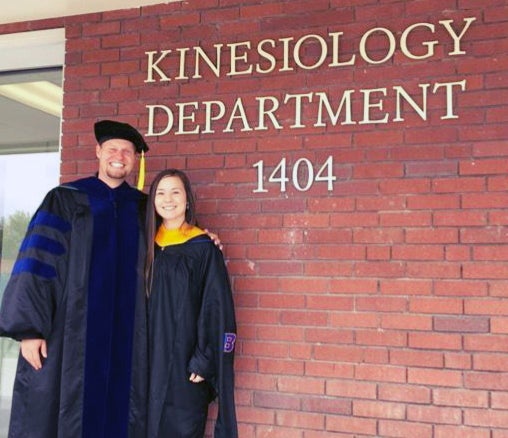
A group affiliated with the kinesiology department recently presented three projects at the Association of Applied Sport Psychology National Conference in Portland, Oregon.
Assistant professor Eric Martin and undergraduate research assistant, Adriana Amador were joined by Megan Byrd from Georgia Southern University to present an oral presentation titled “The role of passion and athletic identity in reporting sport-related concussions.”
Researchers found that student-athletes sought out information from individuals they knew well, who they viewed as experts on concussions and who were easily accessible to student-athletes. Athletes’ intention to report concussions was predicted by how seriously athletes viewed concussions, their motivation for sport and previous concussion history (athletes with a previous concussion were less likely to report future concussions).

Recent kinesiology master’s graduate Ali Ohashi and Martin presented work from Ohashi’s masters’ thesis titled “Transitioning Out of Sport: Perspectives of Student-Athlete Support or Development Services.” Researchers found that those in charge of student-athlete services identified a number of barriers to transitioning out of sport largely influenced by athlete’s high levels of athletic identity. Student-athlete service personnel indicated programming they offered targeted a number of identified obstacles, but this programming varied significantly at each university.
Finally, Martin presented a poster with Andrew Mac Intosh from RISE (Ross Initiative in Sport for Equality) and Yannick Kluch from Rowan University. The poster, “Collegiate athletes’ views on social support and social causes: Implications for athlete activism,” found that student athletes perceived high levels of support from significant others in terms of general support, instrumental support and engagement in social justice causes. The greatest level of support came from parents, friends and teammates. Interestingly, there were no practical differences in perceived support based on gender, race or previous engagement in activism related to social justice causes.